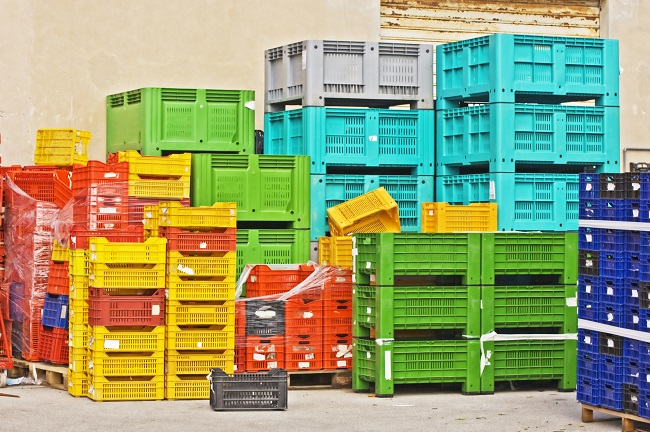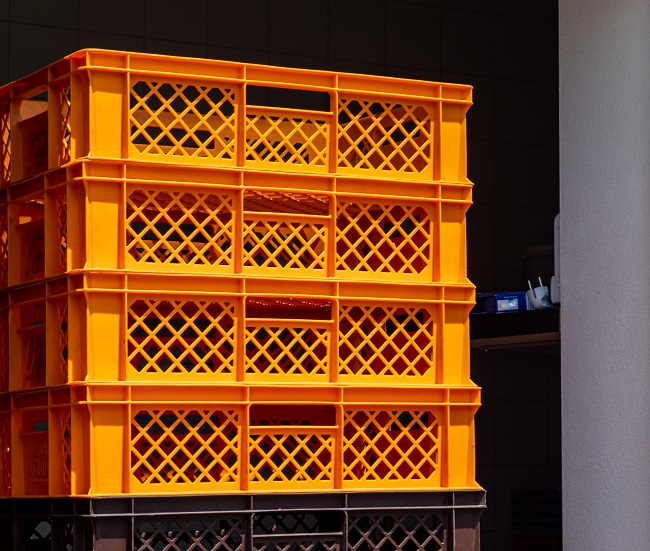
Most supermarkets throw away a lot of packaging every day. The best solution to reduce the energy and work of throwing away packaging is to convert the supermarket packaging to reusable supermarket crates. Plastic supermarket crates are a good alternative because they’re environmentally friendly. It provides a capacity to help store and preserve the quality of fruits, vegetables and other items. And it improves the safety and handling of items so that customers receive items in good conditions. Here the environmental benefits of why supermarkets should use reusable plastic pallet boxes.
Prevent Food Waste
One of the environmental benefits of using plastic supermarket crates is that it has been designed with the capacity to prevent food waste. It has a ventilated sides feature which aid airflow. Airflow helps to keep a constant temperature and increase cooling.
Another feature is the smooth sides and curved corners. This helps to prevent the items from bruising and knocking against each other. And it also ensures secured stacking of the crates to prevent them from damages during transit.
They maintain the quality of items throughout the journey of when it was supplied to when it gets to customers. The features increase the longevity of products and prevent food waste. It helps customers reduce the amount of money spent on food. Food waste is one of the major contributors to the increase of carbon footprint along the supply chain.

Reducing Packaging Waste
Another environmental benefit of supermarket crates is its protective nature. It helps to preserve vegetables and fruits from collapsing when being handled by a forklift. The product can be distributed loosely with no additional protection or packaging. Supermarket crates require no stapling or tapping during transit, they are easily secured on pallets.
The pallet lid requires no banding or stretch wrapping when stacked on pallets. It allows supermarket owners to reduce the tedious process of primary packaging and packing sundries throughout the journey from the suppliers to the end-user. Additional, it is cost and environmental saving
Protects the Environment
There is an increased awareness to protect the environment and keep it safe for everyone. Many programs have been designed to help people learn ways to protect the environment. Most programs focus on adapting reusable packaging. With the increasing awareness and understanding, more customers are taking up the responsibility by requesting product and packaging that is environmentally friendly.
Many companies are tackling the issues too by creating closed-loop systems. The closed-loop systems help companies adhere to the guidelines of organizations like the guideline put in place that all companies must undergo carbon trust of reducing: recycle and reuse.
There are more environmentally friendly supermarkets with reusable crates. The supermarket crates can be reused over many years and it reduces the amount of money that will be spent to purchase a new one. It has the advantage of replacing hundreds of cardboard boxes used just once. They are 100% recyclable even at the end of their life.



